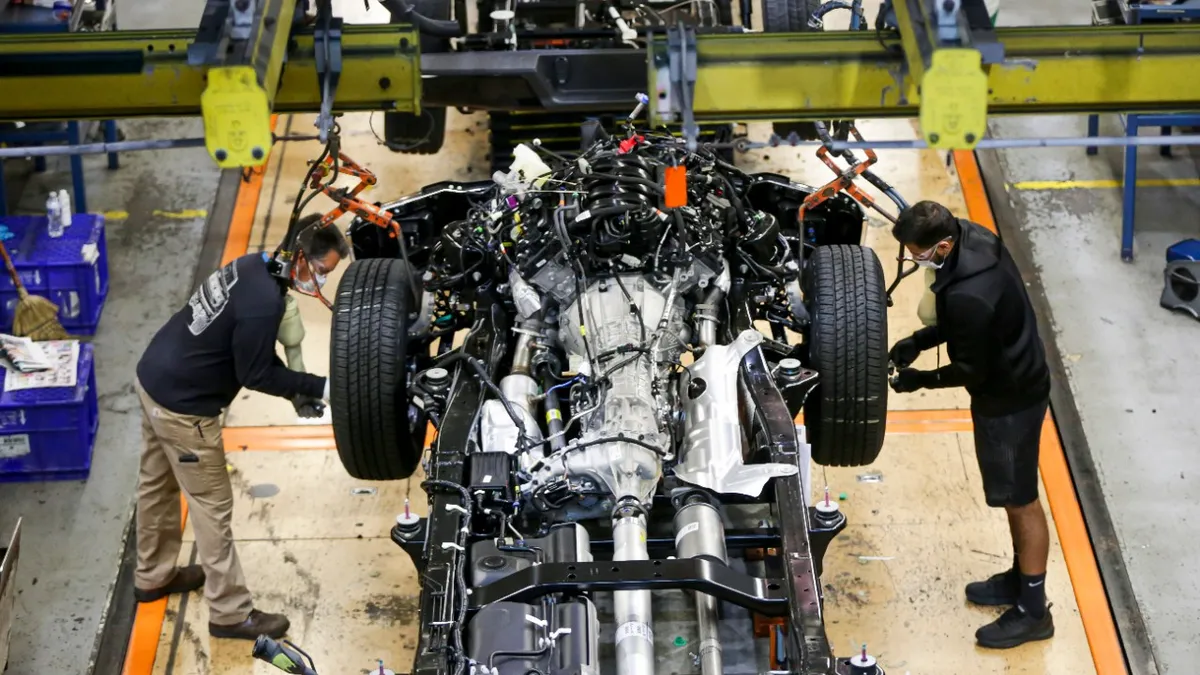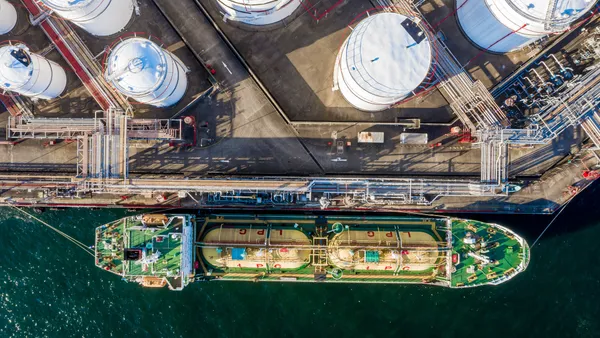The world’s leading automakers have made progress on driving demand for fossil-free steel in a bid for more sustainable supply chains, according to a 2024 Leaderboard Report from Lead the Charge, an advocacy network for sustainability in the auto industry.
After 78% of automakers scored less than 10% on steel decarbonization in the 2023 report, 39% are below the same threshold this year, per the report. The percentage of automakers who scored less than 0% also fell between 2023 (61%) and 2024 (33%).
“2024 saw notable progress on steel and, to a slightly lesser extent, aluminum decarbonization,” the report said. “This suggests that pressure from civil society, investors and regulators over the past year has been successful in transforming auto steel decarbonization from a marginal issue for the auto industry into a mainstream one.”
Still, the gap in the steel-decarbonization category between Volvo and last-place General Motors shows that “automakers seem to be implementing a more ad-hoc approach,” the report said. Each is taking an individual action without a wider strategy around targets and mapping. Currently, one third of the evaluated automakers have yet to take concrete action on the decarbonization of steel and aluminum.
“Automakers can take inspiration from the industry leaders in these areas to improve their performance,” the report said.
Manufacturers and automakers have been implementing changes to make the automotive industry greener — including investing in electric vehicle manufacturing and setting new standards for measuring scope 3 emissions.
The report identified Volvo as a leader for decarbonizing its steel supply chain, with the automaker scoring first place for environmental sustainability with a score of 47%. The company has set targets to increase the amount of fossil-free and recycled steel in its vehicles and signed an advanced purchase agreement with SSAB for fossil-free steel to be supplied at a commercial scale by 2026. According to the report, Volvo is also the only automaker that is a member of two initiatives for steel decarbonization and responsible steelmaking, SteelZero and ResponsibleSteel.
Tesla has also made significant improvements in its target to decarbonize steel. According to the report, Tesla is the first — and only — in the industry to disclose disaggregated greenhouse gas emissions for its steel supply chain. Steel emissions make up 8% of Tesla’s Scope 3 emissions for purchased goods and services, and upstream logistics. These improvements placed Tesla in third place in the report’s fossil-free and environmentally sustainable section, with a score of 31%.
General Motors is ranked last this year among the five companies in the steel-decarbonization category, scoring a 17%. However, that mark was up from 0% in 2023. A supply contract with U.S. Steel for the sustainable verdeX material and a deal with ArcelorMittal North America for recycled steel contributed to GM’s score increase.













